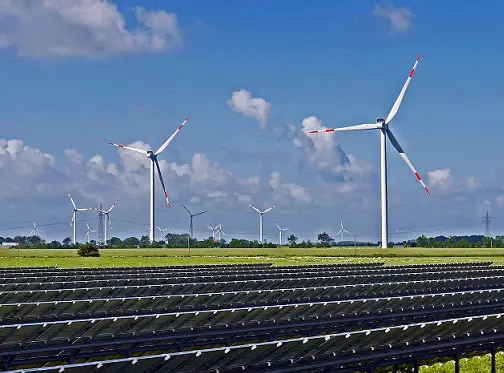The rise of the Environmental, Social, and Governance investment strategy was based on the idea that companies which adhered to the ethos of the Environmental movements, Social Justice movements, and responsible governing movements would outperform companies which behaved in a less socially-oriented manner. Funds such as Vanguard and Blackrock created ESG funds, and saw massive capital inflows from investors eager to support businesses with such values. Meanwhile activist investors set about trying to leverage positions in non-ESG-oriented companies, to force those companies to support ESG initiatives, under the theory that such pro-social actions at the cost of immediate profits would increase profitability long-term.
However Entrepreneur and author Vivek Ramaswamy has now formed an anti-ESG-investment fund, which will emphasize supporting energy companies which reject ESG initiatives in favor of raw performance and productivity at any cost. So far he reports it has raised over $100 million.
Ramaswamy’s asset management firm Strive introduced its exchange-traded fund DRLL, and noted it had, “exceeded $100 million in assets under management (AUM) and over $160 million in traded volume in its first full week of launch.
“This represents an important milestone, and it’s just the first step of our journey,” Ramaswamy said in a press release. “Our goal is to unlock the potential of the U.S. energy sector by mandating companies to focus on excellence, including through greater oil and gas production, instead of social agendas imposed by large ESG-linked asset managers.”
Matt Cole, Strive’s products chief said, “We believe our message and mandates to US companies are already resonating with Americans. Unlike typical ETF launches where you see a small number of high dollar trades, the success of DRLL has been driven by smaller dollar trades.”
Ramaswamy has previously described his new fund as bringing a, “different shareholder voice to Corporate America’s boardrooms” that would seek productivity, rather than to support, “these toxic political and social agendas.”
He went on, “That means yes, drilling for more oil. Yes, fracking for more natural gas. Yes, doing whatever allows you to be most profitable and successful over the long run without regard to somebody else’s political agenda. Nobody is delivering that voice to the energy sector today. And I will tell you, that’s the shareholder mandate that Strive plans to deliver to U.S. energy companies.”
He noted ESG sought to “dictate the flow of capital into the country,” and called it, “one of the defining threats to both capitalism and democracy.”
He went on, “There is unprecedented aggregation of capital, $22 trillion of capital in the hands of just three large investment firms who are now using this philosophy to be able to get done through the backdoor what government could not get done through the front door through the democratic process. That’s why I view it as, I think, probably the single greatest spectacle of capitalism and democracy.”
While he urges government leaders to act against it, he noted it was a problem best dealt with in the market, saying, “At the end of the day, if there are three large asset managers who are using their market power to force companies in every sector from energy to consumer products companies to tech companies to behave in a certain way, then there needs to be new large-scale asset managers that represent the will of everyday Americans by investing their money and speaking and advocating on their behalf in ways that, actually, most of those everyday citizens would want.”
He also noted, the ESG movement was not without guilt in our present energy crisis, saying, “We have a massive energy crisis in this country, a supply-demand imbalance which American energy companies are unable to meet because of the constraints applied to the sector. The ESG movement has effectively demanded that American oil companies drill for less oil, that they frack for less natural gas, that they produce less energy. That’s actually what’s led to the massive supply problem, which in turn has created high gas prices, which in turn states are starting to create rolling blackouts. And the correct answer has to be taking the shackles and handcuffs off of these companies not just through regulations… [but] through the private sector itself.”
ESG’s longer term costs can most acutely be seen in Sri Lanka, where the President imposed ESG guidelines on farmers, restricting the use of fertilizers to protect the environment. That set off food shortages, rampant inflation, and an economic collapse which led to the President fleeing the country, and which the country is still in the throes of. Now Canada has just imposed similar policies.
The Netherlands is attempting to implement similar policies as well, prompting massive protests from farmers which have blockaded roads across the country and sunk its agriculture sector into chaos.

